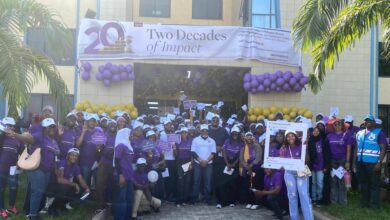Micro Pension: PenCom Restates Commitment To Capturing 75m Informal Workers

The National Pension Commission (PenCom) is resolute in its commitment to extend pension coverage to about 75million workers in the informal sector under the Micro Pension Plan (MPP).
PenCom Director General, Mrs Aisha Dahir-Umar, restated the commitment at the Micro Pension Open Day Event held
on Friday in Lagos.
Organised by the Pension Operators
Association of Nigeria (PenOp), the event was designed to bring together key players in the Micro Pension Plan initiative such as Pension Fund Administrators (PFAs), Pension Fund Custodians (PFCs), services providers, industry experts and the media to interact on developments, challenges and strategies to ensure the successful implementation of the MPP.
The MPP was formally launched in March 2019 by the former President of the Federal Republic of Nigeria, Muhammadu Buhari, as part of the Commission’s efforts to expand pension coverage to workers in the informal sector.
Speaking, Mrs Dahir-Umar said, the theme of the event ”Challenges, Prospects for Growth, and Deepening Financial Inclusion in Nigeria” was apt as it aligns with the Commission’s resolve to expand pension
coverage to all workers, especially those in the informal sector through the MPP.
The DG said, the MPP initiative would promote economic growth by providing a stable source of income for retirees and reduce old-age dependency, thereby causing a reduction in the poverty rate.
She said, “the Plan also aims to encourage a savings culture among low-income earners and self-employed individuals in the country”.
The PenCom boss said, the Commission has recorded some modest success in its efforts to extend pension coverage to the informal sector.
She said, “as at April 2023, the total number of registered Micro Pension participants stood at 95,045 with total value of the MPP Fund of N435.61m.
“It is, however, clear that more needs to be done to achieve the desired outcome of extending coverage to workers in the informal sector with an estimated 50 – 75million workers”, .Mrs Dahir-Umar added.
She listed MPP implementation challenges to include low awareness level, limited contribution remittance channels; lack of adequate incentives to encourage participation and absence of innovation to enhance efficiency around registration, pension contribution remittances and benefit payments.
She urged all to leverage on the platform to discuss and explore ways to overcome the hurdles associated with the implementation of the MPP.






